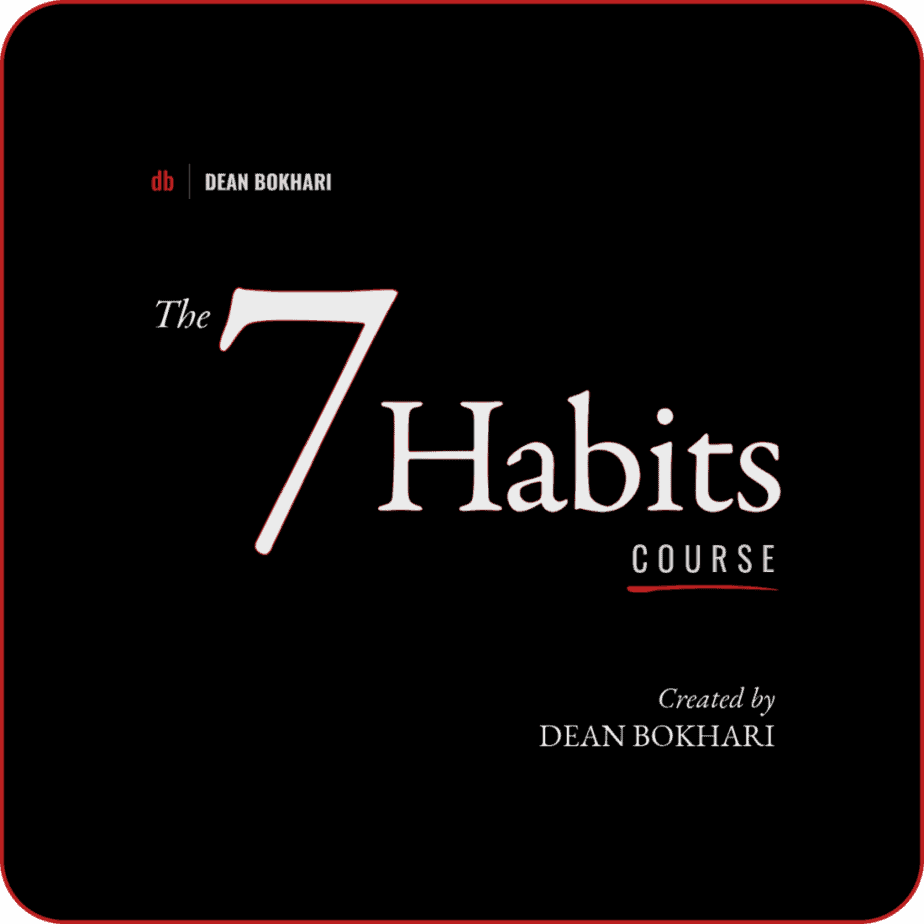This program is currently closed for enrollment.

Welcome to The 7 Habits Course!
Disclaimer: Dean Bokhari and The 7 Habits course are not affiliated with “The 7 Habits of Highly Effective People” book, its author, or the FranklinCovey organization in any capacity.

